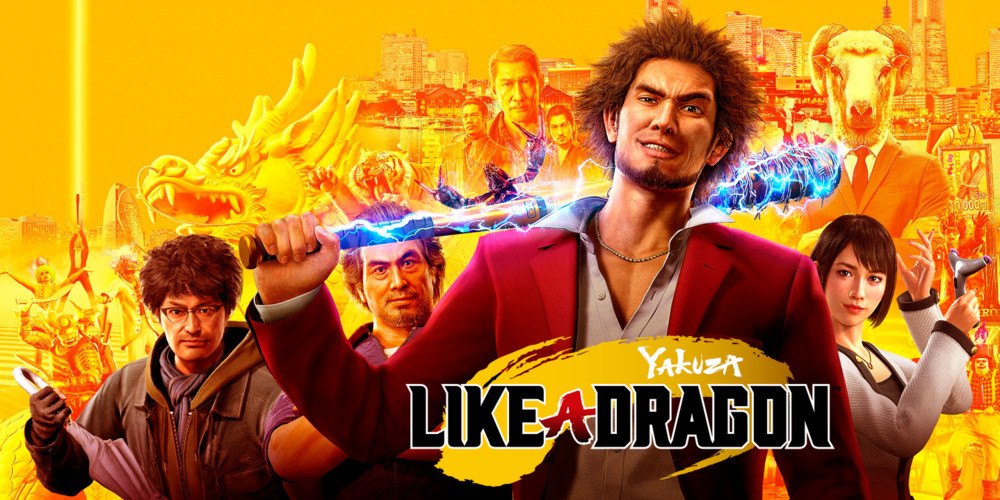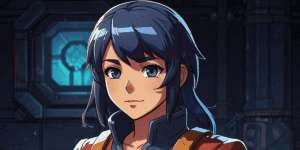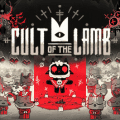From Rejection to Revered: The Unlikely Journey of Yakuza/Like a Dragon

The Yakuza/Like a Dragon series is a staple in the gaming industry today, but its path to success was anything but straightforward. Series creator Toshihiro Nagoshi recently revealed that Sega, the publisher known for Sonic the Hedgehog, initially "flat out rejected" the concept. In the early 2000s, Sega was focused on family-friendly content, aiming for mass appeal and steering clear of niche markets. This decision made it incredibly challenging for Nagoshi to get his gritty game about the Japanese criminal underworld off the ground.
Nagoshi shared his struggles during an appearance on Weekly Ochiai, translated by Automaton. He explained that Sega's emphasis on appealing to a broad audience often led to the dilution of new game ideas. Many proposals were altered to align with management’s vision, losing their original essence in the process. Nagoshi, however, was determined to stay true to his vision. Despite the initial rejection, he didn't give up and continued to push for the game's approval.
It took Nagoshi three attempts to finally convince Sega's management to greenlight the first Yakuza game. This approval was far from traditional; it was described as "quite forceful," indicating the lengths to which Nagoshi had to go to see his vision realized. Ultimately, the game was developed by Sega's CS1 Research and Development team, which was later rebranded as Ryū ga Gotoku Studio. The first Yakuza game was released for PlayStation 2 in 2005, marking the beginning of a new era for Sega.
The game's release marked a significant turning point, transforming into a hit franchise that fans adore today. The series has expanded to eight mainline games and numerous spin-offs. Each installment dives deep into the lives of its characters, exploring themes of loyalty, honor, and redemption within the criminal underworld. The intricate storytelling and dynamic gameplay have captivated players worldwide, proving that Nagoshi's persistence paid off.
In its 9/10 review, IGN lauded Like a Dragon: Infinite Wealth as one of the finest entries in the series. They highlighted its expansive, captivating world and engaging turn-based combat, calling it the pinnacle of the Like a Dragon series in this regard. The franchise's continued success underscores how unconventional ideas can evolve into cherished classics. Nagoshi's path from initial rejection to eventual triumph showcases the importance of perseverance and creative vision in the gaming industry.
Latest posts
See more-
![The Last of Us Part II: In-Depth Character Analysis and Storyline Exploration]() Editor’s Choice
2024-08-11
The Last of Us Part II: In-Depth Character Analysis and Storyline Exploration
The Last of Us Part II is an action-adventure video game that has gained significant popularity since its inception. Developed with immense creative prowess by...
Editor’s Choice
2024-08-11
The Last of Us Part II: In-Depth Character Analysis and Storyline Exploration
The Last of Us Part II is an action-adventure video game that has gained significant popularity since its inception. Developed with immense creative prowess by...
-
![CrossCode Developer Announces Alabaster Dawn, Enters Early Access in Late 2025]() News
2024-08-12
CrossCode Developer Announces Alabaster Dawn, Enters Early Access in Late 2025
In 2021, Radical Fish Games initially introduced a new action RPG titled Project Terra. Now, they have officially named it Alabaster Dawn and announced that...
News
2024-08-12
CrossCode Developer Announces Alabaster Dawn, Enters Early Access in Late 2025
In 2021, Radical Fish Games initially introduced a new action RPG titled Project Terra. Now, they have officially named it Alabaster Dawn and announced that...
-
![Alabaster Dawn Planned to Have 30-60 Hours of Playtime, Demo Launching in Early 2025]() News
2024-08-13
Alabaster Dawn Planned to Have 30-60 Hours of Playtime, Demo Launching in Early 2025
Radical Fish Games has made an exciting announcement regarding their upcoming action RPG, Alabaster Dawn, which is set to enter early access in 2025. In...
News
2024-08-13
Alabaster Dawn Planned to Have 30-60 Hours of Playtime, Demo Launching in Early 2025
Radical Fish Games has made an exciting announcement regarding their upcoming action RPG, Alabaster Dawn, which is set to enter early access in 2025. In...
Latest Reviews
See more-
![]() Action
Cult of the Lamb
Action
Cult of the Lamb
-
![]() Action
WILD HEARTS™
Action
WILD HEARTS™
-
![]() Casual
Gacha Club
Casual
Gacha Club
-
![]() Action
Call of Duty®: Warzone™ 2.0
Action
Call of Duty®: Warzone™ 2.0
-
![]() Action
Gacha Cute
Action
Gacha Cute
-
![]() Action
Cuphead - The Delicious Last Course
Action
Cuphead - The Delicious Last Course










